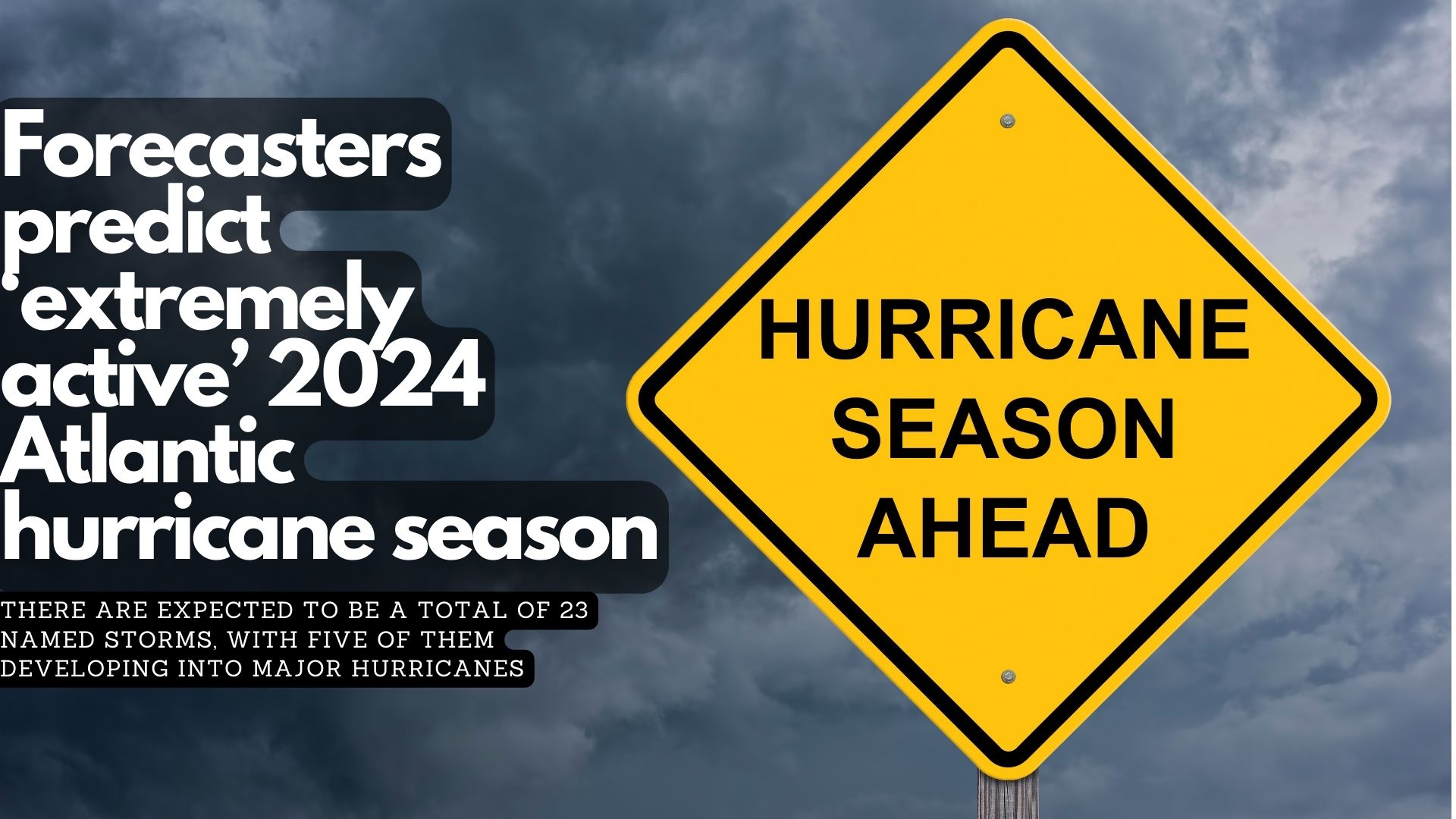Weather forecasters from Colorado State University (CSU) have projected an “extremely active” 2024 Atlantic hurricane season due to warm sea surface temperatures and reduced wind shear during the summer and fall months. The report says that current El Niño conditions are likely to transition to La Niña conditions this summer/fall, leading to hurricane-favourable wind shear conditions.
According to the CSU forecast, there are expected to be a total of 23 named storms, with five of them developing into major hurricanes, characterized by winds exceeding 111 miles per hour (178 kph), out of a total of 11 hurricanes.
The report explains that sea surface temperatures in the eastern and central Atlantic are at historically high levels and are expected to remain significantly above average throughout the upcoming hurricane season. It says that this heightened warmth in the tropical Atlantic creates conditions favorable for the formation and strengthening of hurricanes.
With high confidence in this early April outlook, CSU projects a substantially increased likelihood of major hurricanes making landfall along the continental United States coastline and in the Caribbean.
It’s crucial to note that, despite predictions, every hurricane season carries the potential for significant impact. Coastal residents must remain vigilant and prepare thoroughly, as even a single hurricane landfall can define an active season.
Тhе 2024 ѕtоrm nаmеѕ аrе:
Аlbеrtо
Веrуl
Сhrіѕ
Dеbbу
Еrnеѕtо
Frаnсіnе
Gоrdоn
Неlеnе
Іѕаас
Јоусе
Кіrk
Lеѕlіе
Міltоn
Nаdіnе
Оѕсаr
Раttу
Rаfаеl
Ѕаrа
Тоnу
Vаlеrіе
Wіllіаm
Why are hurricanes given names?
According to the National Hurricane Center, employing concise and distinctive names in both written and spoken communication proves to be more efficient and accurate compared to older methods reliant on latitude and longitude. Additionally, using easily memorable names helps mitigate confusion, especially during periods when multiple storms occur simultaneously.
What happens if the predetermined list of hurricane names is exhausted?
Prior to 2020, when all names were used, the Greek alphabet was utilized, assigning names like Alpha, Beta, Gamma, Delta, Zeta, Eta, Theta, etc. This occurred twice, once in 2005 and again in 2020. Now, instead of resorting to the Greek alphabet, a supplementary list of tropical cyclone names will be employed.
